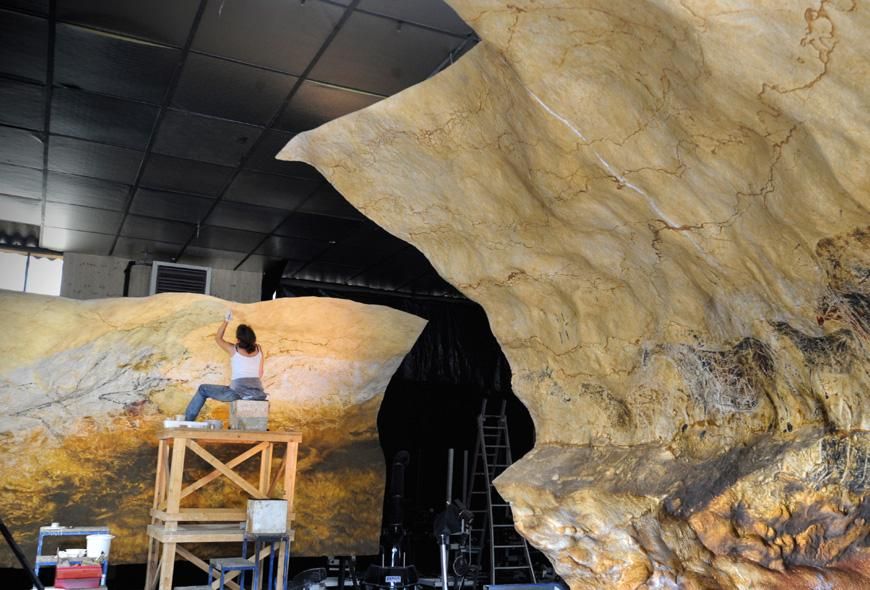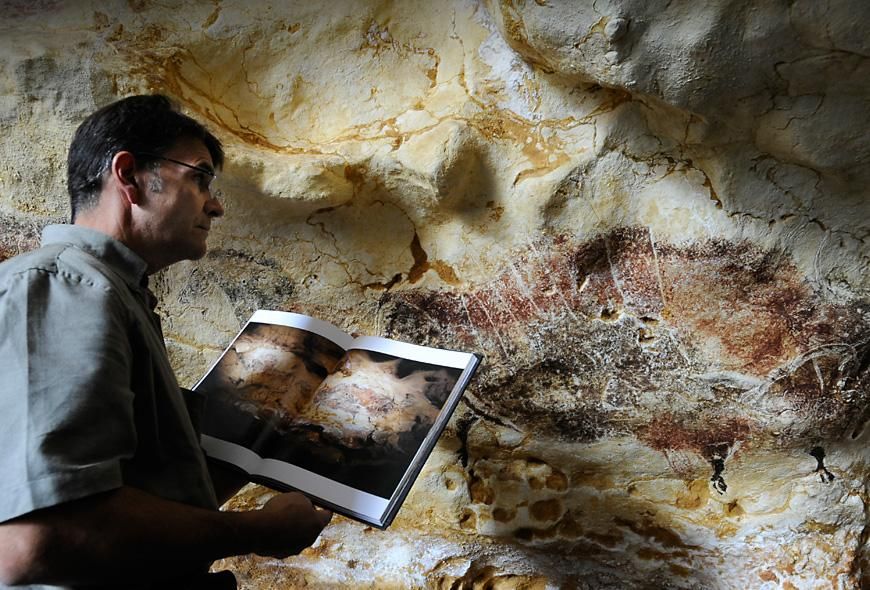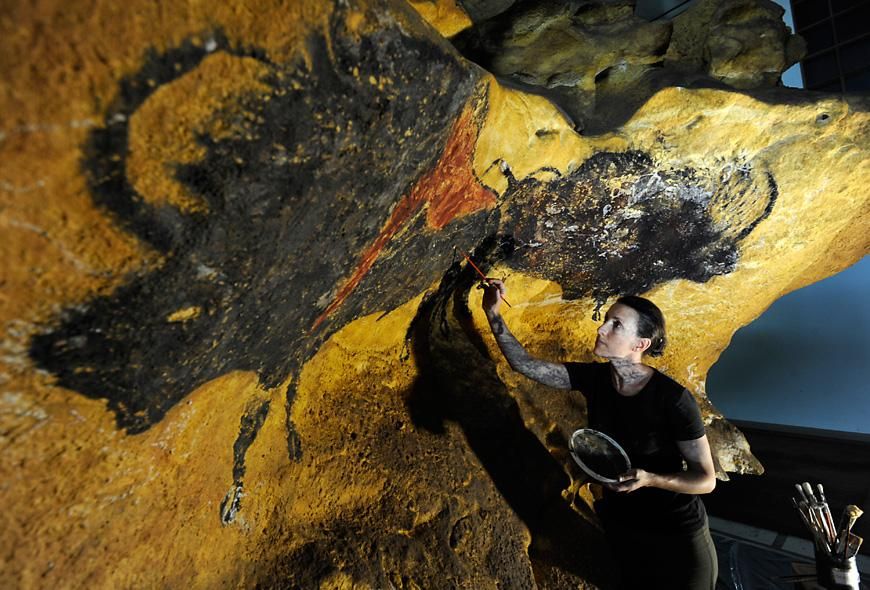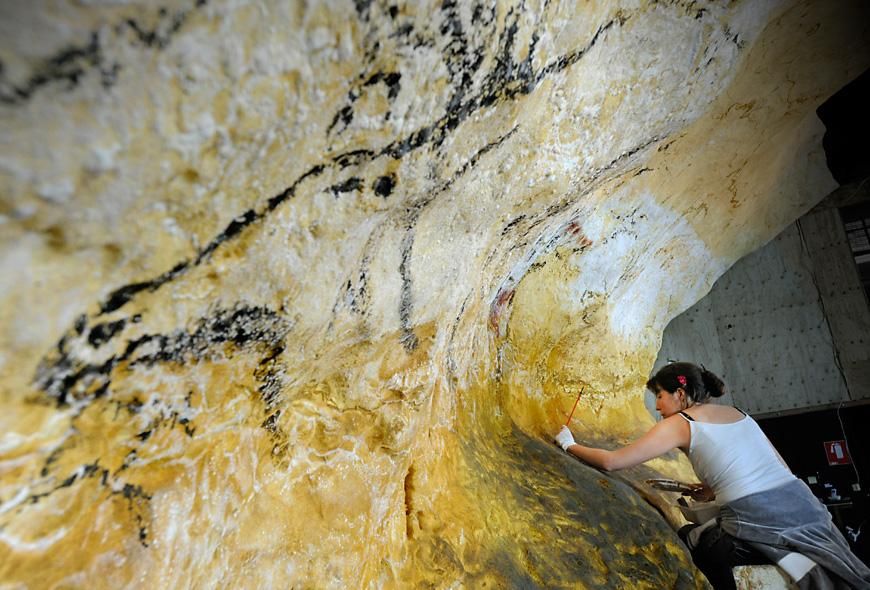See the World Like a Paleolithic Cave Dweller With This Replica of the Lascaux Cave Paintings
Go back in time with the help of some talented French artists
Ever had a hankering to get up close and personal with some of the most famous pieces of prehistoric art in the world? Sorry—France’s Lascaux Cave, the site of breathtaking Paleolithic paintings dating from approximately 15,000 to 17,000 years ago, has been closed to the public since 1963. But there’s hope for the frustrated cave art aficionado: Agence France-Presse reports that French artists have just finished a spectacularly accurate reproduction.
The facsimile took more than three years of painstaking detail work, writes AFP. Artists used everything from high-tech projections to paintbrushes and dentist’s tools to recreate the cave, which will be installed in the International Center of Parietal Art located close to the site of the real-life cave. Twenty-five painters, sculptors, welders, molders, locksmiths and other artisans are responsible for the feat. The reproduction will be a highlight of the cavewall art-focused center when it opens this fall.
The Lascaux cave paintings have loomed large among anthropology circles since four French teenagers discovered it while looking for their lost dog. It contains some of the most stunning prehistoric art ever seen, including scenes of hunts and animal chases that immediately became iconic.
The Lascaux became a victim of its own popularity: It drew in more than 1,500 visitors each day until it had to be shut down to prevent all that breath-produced carbon dioxide from damaging the art.
There are already other Lascaux reproductions out there: “Lascaux 2” lured in more than 10 million visitors, and “Lascaux 3” went on a world tour in 2012. But “Lascaux 4” is on a whole new scale: It’s a full-size facsimile of nearly the entire cave that will only be open to 30 visitors at a time. During busy times, tours will be guided, but visitors who arrive at the museum during slow times will be able to tour on their own with the help of a flashlight.
Can’t wait until fall to get a glimpse of the almost-real-life cave? The nearby Chauvet cave, which was discovered in 1994, has earned national recognition and a complex, expensive reproduction, too. But if you're interested in viewing the Lascaux, you can take a virtual tour of it here. And consider adding the new facsimile to your autumn itinerary—a triumph of ancient and modern artistry, it promises to be about the closest you can get to knowing what it was like to be a Paleolithic cave dweller.
/https://tf-cmsv2-smithsonianmag-media.s3.amazonaws.com/accounts/headshot/erin.png)




/https://tf-cmsv2-smithsonianmag-media.s3.amazonaws.com/accounts/headshot/erin.png)